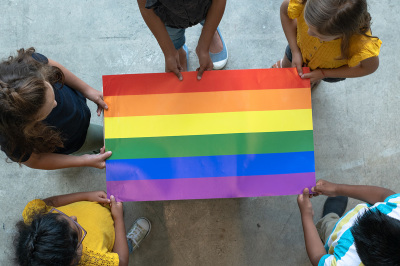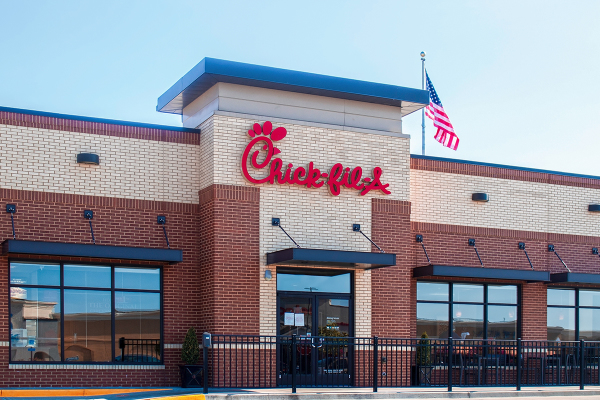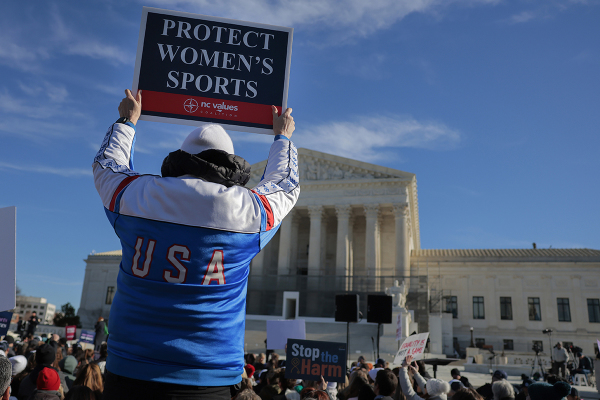13 things the Church can learn from the LGBT community

Whether you agree with their lifestyle, you have to respect how LGBTQ activists have fundamentally transformed American society in one generation. Inversely, during this same time, Bible-believing Christians and their values went from being in the mainstream of society to a shunned minority.
As a strategist, I enjoy studying influential societal movements. I have been intrigued by how this once minority movement has influenced every facet of western society in just a few decades. The following things the Church can learn from the LGBT community are based on my strategic observations:
1. They humanized their lifestyle
Countless movies, novels, plays, and sitcoms have been released to normalize their lifestyle in the eyes of society. The LGBTQ community has been characterized as oppressed victims or as normal people with normal lives and problems who lead productive lives in society.
Today’s Church desperately needs to humanize itself in the eyes of the nation. Instead of the ignorant Bible-thumping, hateful, bigoted image the media depicts the Church to be, Christians should create films, novels, plays, music, and theatre that characterize them as human beings who hurt, cry, experience failure and pain while being the most charitable, creative, forgiving and loving people on the earth.
2. They influenced the media
While the evangelical church of the past generation focused on political action, the LGBTQ community focused on influencing Hollywood movies and mainstream media. They were smart enough to shift the views of culture before attempting to shape politics and shift policy. The evangelical church has learned that mere political influence is not enough for respect and is trying to influence culture again by creating high-level movies, arts, and entertainment.
3. They influenced political spheres
After influencing American culture through media, the LGBTQ community successfully lobbied for their rights, won over influential political allies, and changed laws. Furthermore, they understand that they can influence policy not only by running candidates for office but also by interning, volunteering, or joining the staff of elected officials.
4. They redefined words and terms
Since the 1970s, gay activists have successfully taken their official scientific terminology of “homosexual” and replaced it with the word “gay.” This was a brilliant move because the word gay has emotional and cultural connotations of being happy and carefree. Other brilliant moves they made were to co-opt the biblical symbol of the rainbow and to utilize the favored word “pride” to brand their global movement (Genesis 6-9).
5. They reframe debates and policy
A perfect example of reframing policy is when they recently successfully characterized the Florida “Parental Rights in Education” bill, which prohibits classroom instruction on sexual orientation and identity in kindergarten to third grade, as the “don't say gay bill.” They have competent media and marketing strategists skilled in framing narratives that can shift opinion in society.
6. They never quit
In the past decade, while I was in Albany trying to debate policy, the legislators called the evangelical church “the firecracker crowd.” They said the Church makes a lot of noises when an issue comes up, but they never continue lobbying after their initial reaction. However, the LGBTQ community kept on pushing for same-sex marriage even after every state initially voted against it (approximately a decade ago).
7. They influenced religious spheres
They have not been afraid to engage religious communities that typically disagree with them ideologically (IE., LGBTQ organizations, like “soul force,” engage in friendly dialogue with evangelical churches). Also, the LGBTQ community has successfully influenced many historic denominations such as the United Methodist Church, the Episcopal church, and beyond. The UMC has recently been in the news because their affirmation of LGBTQ values has caused a great schism within their ranks.
8. They use a method called gradualism
In the 1990s, the word that was constantly used in the media regarding the treatment of gays was “tolerance.” Now gay activists have successfully converted much of mainstream culture into celebrating the gay lifestyle. They were smart enough to shift the opinion of culture gradually. An “all or nothing” approach rarely shifts societal views.
9. They had a generational strategy
The book “After The Ball,” laid out a unified generational plan to shift cultural opinion in favor of the gay lifestyle. Conversely, many in the Church merely have a one generational approach regarding the perpetuation of their faith.
10. They integrate their lifestyle into every aspect of their life and vocation
In general, the LGBTQ community effectively integrates every aspect of their life and vocation with their worldview. Unfortunately, many Christians serve God in the Church but lag as representatives of the Kingdom in the workplace.
11. They put their money behind their cause
In their 2011 fight for same-sex marriage, both NYC mayor Michael Bloomberg and Tim Gill gave millions of dollars to support NY state senators who would vote in favor of gay marriage.
In my past political efforts, I have been told numerous times by elected officials that the deep pockets of LGBTQ activists influence how they vote simply because candidates feel they need that money to get re-elected. Generally speaking, elected officials don’t care about how many people attend the Church, what moves them is “how many people vote” and “how much money they raise” for political elections.
12. They annually unify with mass rallies
The annual Gay Pride parade attracts millions of their supporters in many cities across the globe. This saliently demonstrates the unified power of their voice. In the past, some in the evangelical church tried annual gatherings such as “the march for Jesus.” It started off very strong but eventually lost much of its momentum and ceased to function in many cities.
13. Their views are promulgated in public education
Decades ago, the LGBTQ community started introducing groundbreaking children’s books utilized in public education such as Heather has Two Mommies. Curricular like this guarantee that their perspective will continue to shape the prevailing cultural worldview through the educational sphere. On the other hand, Christians who don’t prioritize the instruction of their children will invariably fail to perpetuate their faith to successive generations.
Dr. Joseph Mattera is an internationally-known author, consultant, and theologian whose mission is to influence leaders who influence culture. He is the founding pastor of Resurrection Church, and leads several organizations, including The U.S. Coalition of Apostolic Leaders and Christ Covenant Coalition.
To order his books or to join the many thousands who subscribe to his newsletter, go to josephmattera.org





















